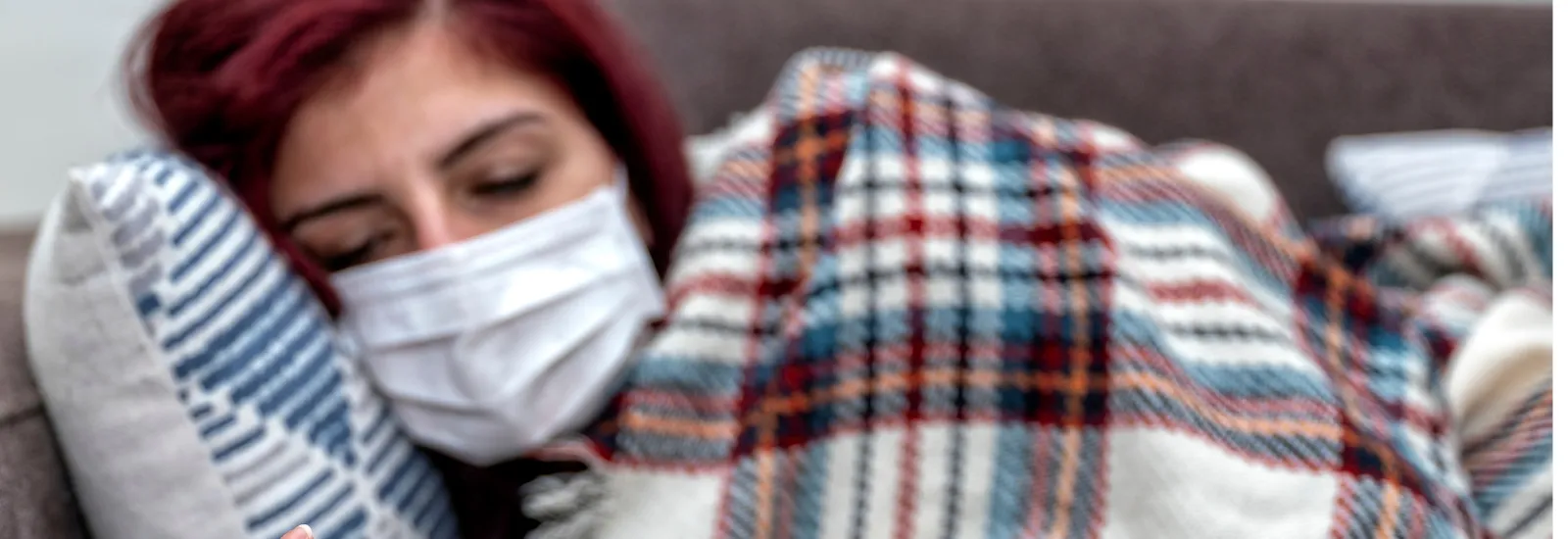
Triple-demic of 2022: RSV, COVID, and flu
During the
height of the COVID-19 pandemic, it seemed other illnesses such as the flu and
colds "disappeared" at times. They were still present, but the COVID virus certainly
took center stage.
Now that the
pandemic has lessened to a certain degree, influenza and RSV (respiratory syncytial
virus) are making themselves known, creating what some experts are referring to
as the "triple-demic of 2022."
How can
individuals keep themselves and their family members safe? An important
strategy is to recognize symptoms as soon as possible — especially in very
young children who have no way to express what they're feeling. Look for a runny
nose, congestion, cough, wheezing, fever, loss of appetite, and generally being
more fussy than usual.
"Those are the
most common things you'll see. It should be remembered most children will do
fine, but those are the symptoms you're going to see initially," said Samuel
Iden, MD, Medical Director of Emergency Medicine at Reid Health.
Where to get care?
Most people
with RSV, COVID, or flu experience mild symptoms, but it's
important to be mindful of serious symptoms that require additional emergency
care.
In non-emergent
situations, the best place to start in getting treatment for your illness is
with your primary care physician. An emergency room visit should be reserved for those who are experiencing severe
symptoms such as fast or troubled breathing, chest pain or pressure, severe
muscle weakness, or worsening of chronic medical conditions.
Treatment protocols for COVID, RSV, and influenza
Because COVID,
RSV, and influenza have many symptoms in common, it can be difficult to
determine the appropriate course of action, but Dr. Iden says upfront
management of all three is similar for both children and adults.
"It's mainly
supportive care - grandma's chicken noodle soup, pushing fluids, controlling
fevers," he said.
It's crucial
those feeling ill stay hydrated, no matter the age. Fever-reducing medications such
as Tylenol or Motrin can provide some relief.
"More
challenging though, regardless of the disease, is the question of how sick this
particular child is going to be," Dr. Iden said. "That's the real challenge - whether
it's COVID or influenza or RSV - looking at a patient and trying to figure out
is this one of the patients who is going to do great and fly through this
without any trouble or is this a child who 48 hours from now is going to be
struggling."
Children who
were born prematurely are at significant risk for RSV complications because of the
underdevelopment of their lungs. If a child has known lung disease or heart
disease - or if they're a transplant patient or undergoing chemotherapy - they
automatically go into a different categorization of concern.
"I would
encourage folks if you have a very young infant, less than a couple months old
who is premature, talk to your pediatrician about whether your baby is one who
would be a candidate for a medication that can help prevent the disease. It
hasn't been cleared for use in everybody, but it's something to talk about to
your pediatrician," Dr. Iden said.
Virus prevention tips
When it comes
to trying to prevent getting sick in the first place, Dr. Iden reminds everyone
simple actions such as proper hand hygiene, masking, and staying home from work
if you don't feel well work — and they work well.
Parents can
also try to mitigate spread within the household by making sure their sick 3-year-old
doesn't overly expose an infant by giving the baby a "big sloppy kiss." Try to
avoid sharing utensils or sippy cups. And if you have a brand-new baby, decide
carefully where you'll introduce them to friends and family members.
Someone might
be carrying a virus at a baby shower, church, or holiday party and you don't
know it. Little precautions such as these are simple to perform and can make a
world of difference.
Dr. Iden's
biggest piece of advice? "Wash your hands."
Know where to get care. Visit us here to learn about your care options.

